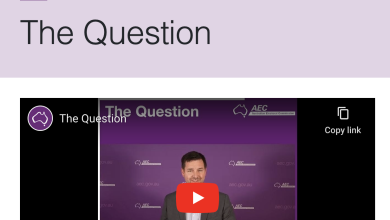Over 75% of businesses believe that reducing waste is part of being a sustainable and ethical business, new Planet Ark and Environmental Protection Agency research reveals.
But there’s also the perception that they’re doing all they can to manage their waste, that there may be little benefit in doing more, or that they don’t have the knowledge to improve their waste and recycling practices. Not true! Here are some simple tips on how to get business recycling sorted in your workplace, and what can be recycled responsibly.
Start small and easy
Change can be challenging, but research shows if people are willing to commit to a small, easy change, they’re more likely to come on board with bigger changes later.
Try simple things like encouraging colleagues to switch off their computer at night, collect cardboard for recycling, or bring reusable coffee cups to work. As long as they do it willingly, they’re more likely to adopt new changes in the future.
Use the group
Humans are social creatures so our behaviour is influenced by our friends, family, and co-workers. So when encouraging colleagues to adopt new recycling practices, highlight that the desired behaviour (e.g. reading from the screen rather than printing) is a common one that everyone else is doing.
Positive reinforcement helps, so a message like ‘Thanks to everyone for recycling’ will be more effective than ‘Everyone keeps putting the wrong things in the recycling bin.’
Hit ‘em where it hurts
In business nobody likes losing money, and research shows the human brain feels the pain of current loss more than the joy of future change, so loss aversion can be a good strategy.
Telling a CEO: “We’re wasting $300 a week on skip bin collections,” is much more powerful than ‘We could save $300 a week by changing our bin collection’, because it emphasises a cost the organisation could avoid.
Send the right signs
Clear communication is crucial when introducing any new recycling process to a workplace. Workers need to understand what’s changing, how it affects them, and what’s expected of them. Concise and informative signage is one of the strongest tools you have to encourage appropriate recycling behaviour.
Freedom to choose
Respecting individual autonomy is a powerful tool in encouraging a change in behaviour. Research on more than 22,000 people showed that adding phrases like ‘You’re free to choose’ or ‘Don’t feel obliged’ can double the likelihood of someone doing the right thing.
More help is at hand
• The Business Case for Less Waste is a new Planet Ark resource which explains the savings to be made from improved recycling practices at work, and provides step-by-step tips for introducing a business recycling strategy to a workplace.
• BusinessRecycling.com.au provides online and phone information and service listings to help businesses reduce waste, and includes details on where specific material types can be recycled across Australia.
• Bin Trim is a free Excel tool developed by the NSW EPA for SMEs to measure their waste and provides tailored information to help reduce, reuse and recycle materials.
• Businesses can find out about eligibility for various environmental grants at: www.business.gov.au/assistance.
It’s just gotta go!
Paper: paper in landfill creates the greenhouse gas methane. Some local councils provide paper recycling services for local business, and if not available in your area, commercial recyclers also provide this service. Also purchase paper that has high recycled content, such as Planet Ark’s 100% recycled paper, FSC certified and carbon neutral.
Cardboard: some businesses may find investing in a cardboard baler an effective way to reduce waste collections whilst creating more space at work, with the added bonus of saving money with fewer pick-ups.
Printer cartridges: if your workplace uses more than three inkjet, toner cartridges or toner bottles in a month you may be eligible for a free ‘Cartridges 4 Planet Ark’ collection box, which can be collected. For fewer than three items in a month, take your used cartridges and bottles to participating Officeworks, Australia Post, The Good Guys, JB Hi-Fi, Harvey Norman, Office National and Office Products Depot outlets. Visit www. Cartridges.PlanetArk.org for more.
Mobile phones: over 95% of the materials in mobile phones can be recycled. MobileMuster is the official recycling program of the mobile phone industry in Australia. It’s a not-forprofit program, funded by members who pay a levy on every handset imported into Australia. Workplaces can register for a collection bin through www.MobileMuster.com.au
Redundant electronic equipment like the old fridge in the office kitchen: electronic goods such as TVs, computers, printers, and accessories can be recycled by TechCollect www. TechCollection.com.au or search www.BusinessRecycling. com.au for more recyclers in your local area. A number of commercial recyclers and scrap metal yards will accept white goods for recycling, and there are organisations and secondhand dealers who will accept white goods for refurbishing.
Bottles, plastic containers from lunches and plastic milk cartons from tea making: while some councils provide a business recycling service, most commercial recyclers also provide co-mingled recycling bins for plastic, paper, glass, aluminium and cartons. Visit BusinessRecycling.com.au to find out about services in your area.
Green waste like apple cores and salad scraps: consider keeping a workplace worm farm, compost bin, or a Bokashi bucket. Or what about a food dehydrator to reduce the volume or weight of food scraps needing to be processed? Also some recycling companies will collect coffee grounds, cooking oil, food scraps, and donations of food. Visit www. BusinessRecycling.com.au for find your nearest recycling service.










